Consider this. In 2015 25% of Americans didn’t have a primary care provider (PCP)—some medical professionals even referred to the yearly physical as a “dying art.” The COVID-19 pandemic worsened the problem, with studies showing that primary care visits decreased by 21% in 2020 and still haven’t returned to pre-pandemic levels.
As a health and wellness professional, it's important to understand your population’s health status so you can offer and promote useful products and information to them. And, with 75% of Americans not having a PCP to monitor their health, using a tool to assess possible health risks benefits the user and your entire organization.
But, encouraging everyone to schedule and attend an annual physical exam may not be the best use of time or funds. Recent studies and research have shown that routine physical exams have virtually no impact on overall health. While maintenance visits remain critical for those with known health conditions or risk factors, for those not experiencing symptoms or predisposition to health conditions, those visits can result in unnecessary and expensive tests. These are most likely some of the reasons that people skip annual exams—they don’t see the value when they feel healthy.
If most of your population doesn't need a yearly physical, then the question becomes: How can you detect health risks in your population and provide the resources they need to make lifestyle changes?
Simply, by using Health Risk Assessments (HRAs).
Let’s look at the top three benefits of using HRAs to gather and monitor the health data of your population.
Benefits of Health Risk Assessments
- Snapshot of current health status
The most beneficial feature of HRAs is that they provide a snapshot of an individual's health status. By gathering data from the individual, the wellness provider and the individual get a clear picture of their current and future health based on habits, lifestyle, and potential risk factors. If a segment of your population isn’t routinely seeing their PCP for annual visits, they may be unaware of rising risk factors for ailments and illnesses due to unhealthy habits. This snapshot of their current health with informative resources from you could be what jumpstarts a drive toward a healthier lifestyle. - Provide information to aid in implementing new programs
As wellness providers, you should tailor the information and offerings you distribute to your population. But how do you know what to offer if you don’t understand their needs and mindset toward making a change?
HRAs provide valuable information that allows you to determine which products and services to promote and which actionable directives you share with your population. For example, suppose the assessments show that a large portion of your population isn't eating a balanced diet. In that case, you can offer resources on making healthy choices or provide services for a nutritionist or dietician. Similarly, if your population is experiencing high stress levels, an HRA can help determine the root of the stress, making it easier to provide relevant resources. Some may benefit from counseling opportunities or mental health services, while others may need information on prioritizing healthy sleep habits, meditation, the benefits of shutting down electronics before bed, etc. - Provide information to follow-up with high risk populations
It’s important to maintain communication with at-risk individuals and follow up with them when appropriate. To do that, you need tools that help identify which populations are at risk. By having your population complete HRAs, you can pinpoint and group those needing complex care—then provide tools, resources, and recommendations to encourage healthier lifestyle choices.
Download our guide, Choosing the Best Health Risk Assessment, today to learn more about how using health risk assessments can benefit your organization and population.








